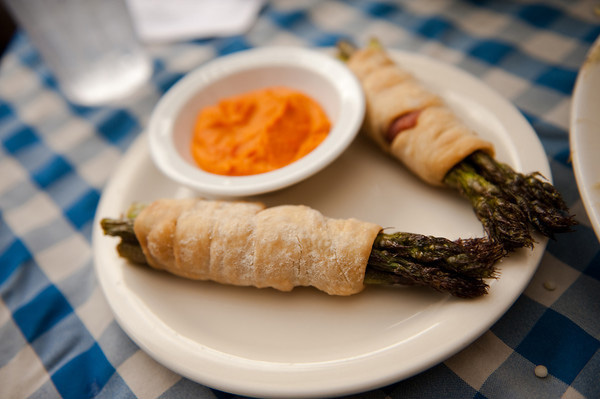
Deck the halls with stalks of spargel, and so forth: We’re entering the high celebratory portion of the German asparagus festival known as Spargelfest. Black Forest Inn puts on an annual interpretation of this Teutonic country feast — the 2011 edition runs from May 20-29.
Black Forest Manager Erica Christ says the restaurant’s interest in Spargelfest comes through a direct family tie. “Germans are absolutely crazy about asparagus,” she notes. “My dad [Erich Christ, Black Forest Inn’s co-founder] grew up in Schwetzingen, which is probably a 20-minute drive from Mannheim. It’s one of the places that calls itself “the asparagus capital of Germany.” For the main event for their Spargelfest, they set up a long table in their main park that seats 400 people… all the restaurants in town have asparagus on their menus, and there’s classical music in the square.”
Christ and her family order the festival’s feature ingredient from the Southeast Minnesota Food Network not long after the holiday season.
“We talk in February, and we’re like, yeah, put us down for 300 pounds,” says Christ. “And we talk again at the end of April and they’ll tell us, ‘Oh, yeah, the asparagus are actually coming out of the ground.’ I’m always so relieved — it’s always down to the wire; you never know how much you’re going to have.”
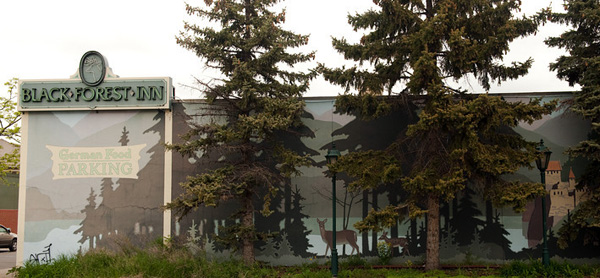
Tying the festival to some of the first local asparagus of spring is key not merely for exciting the winter-weary diner; it also yields a better product.
“It’s great asparagus — we can use every bit of it,” says Christ. “The ends we snap off we puree into soup — it’s still good. At some point last year we ran out and we ran to the store to get some. My dad, who is usually reluctant to spend the extra money on something like fresh, local asparagus, said: ‘This [grocery store] stuff is terrible — it’s not worth saving the money.’ The asparagus we bought at the grocery store had ends that weren’t usable — not for soup, not for nothing. To some extent it’s a question of the age of the stuff — the stuff we’re getting is picked yesterday.”
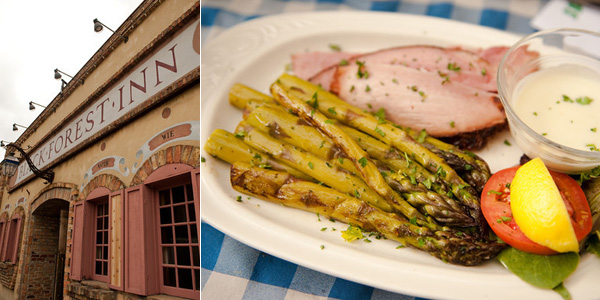
Spargelfest in Germany is a traditional thing — according to Christ, the dishes served tend to be a rather regimented few, including asparagus with ham (above), asparagus with grated hard-boiled eggs, and asparagus with fried potatoes. By contrast, the Black Forest rendition is a firestorm of creativity. Without getting too fusion-y (most of the treatments and dishes sit comfortably within the Anglo / Franco / Germanic / East European realm of cooking), Black Forest takes a liberal hand as it repurposes one green ingredient into a spargel-driven menu that is 10 dishes and three cocktails long.
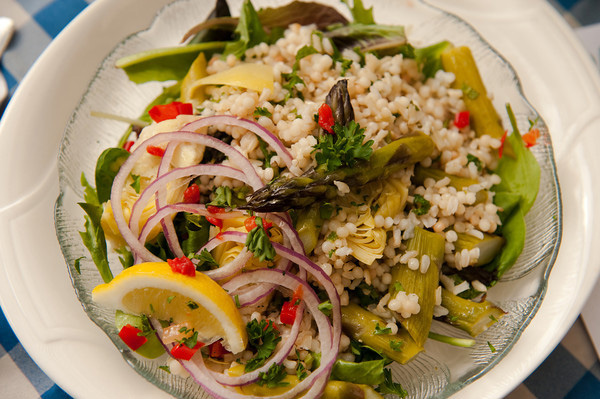
We visited Black Forest Inn for a media preview and were plied with five of the dishes on offer (plus the Spargeltini). First up: a Spargel Brown Rice Salad ($9.50). The whole dish was mild, soothing, gentle, and pleasant — the exceedingly tender asparagus was cradled on a buttery layer of slightly lemony brown rice and couscous with a bit of red onion for contrast. The inclusion of artichoke hearts didn’t rock the boat one bit.
A pastry-wrapped spargel appetizer ($7.50, pictured up top) was both bizarre and pleasing. Essentially two fried puff-pastry ham and asparagus eggrolls, the appetizer came accompanied by a pleasant but underpowered romesco dipping sauce.
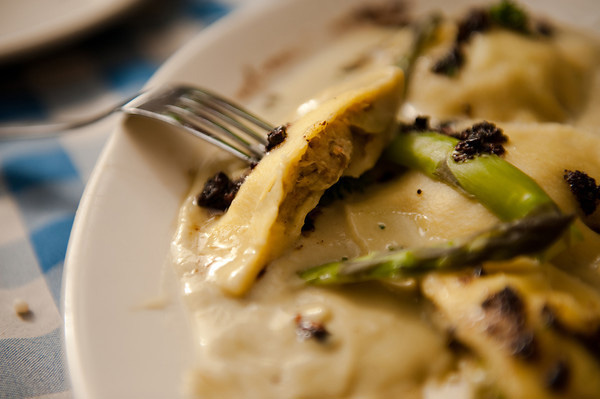
House-made Spargel Pierogi ($13.50 for three) arrived stuffed with asparagus and cheese, served on a warm asparagus mousse and topped with hazelnut sauce. Like the salad, the overall effect was to soothe and relax — nutty, buttery flavors predominated in this dish.
Spargel and Ham ($17.50) was the straight-down-the-middle concession to Spargelfest traditionalists, and despite its simplicity, it was a classic and winning combination. Fischer Farms ham (“We just refer to it as ‘the awesome ham,'” says Christ) complements the asparagus, and both are finished off nicely by the rich Hollandaise that comes on the side.
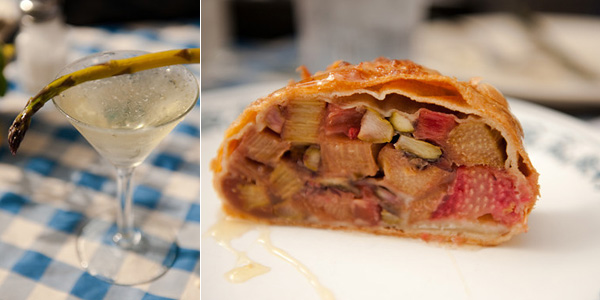
The honey-drizzled Spargel and Rhubarb Strudel ($6.25) sounds like a dare, but tastes like a dream — the earthy, tart rhubarb speaks the language of asparagus, and the two ingredients commune happily. Accompanying whipped cream lets the diner spike up the sugar if needed, but the balance on the strudel slice we tried was just right.
The Spargeltini ($7.25) combines Steinhäger (delicately flavored German gin often kept in the freezer) with asparagus-infused vodka and a bit of citrus-infused vodka. The aromatics and vegetal notes are gentle and balanced, and the drink goes down shocking easily — it’s also on trend with all the vegetal / herbal drinks that have been popping up at craft bars over the past year or two. This is a drink I’d happily order out of season.
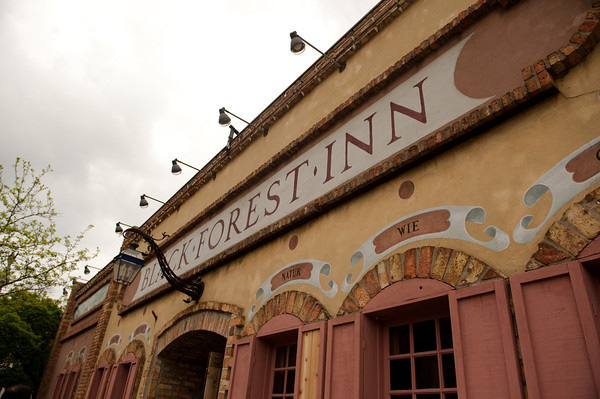

Comments are closed.